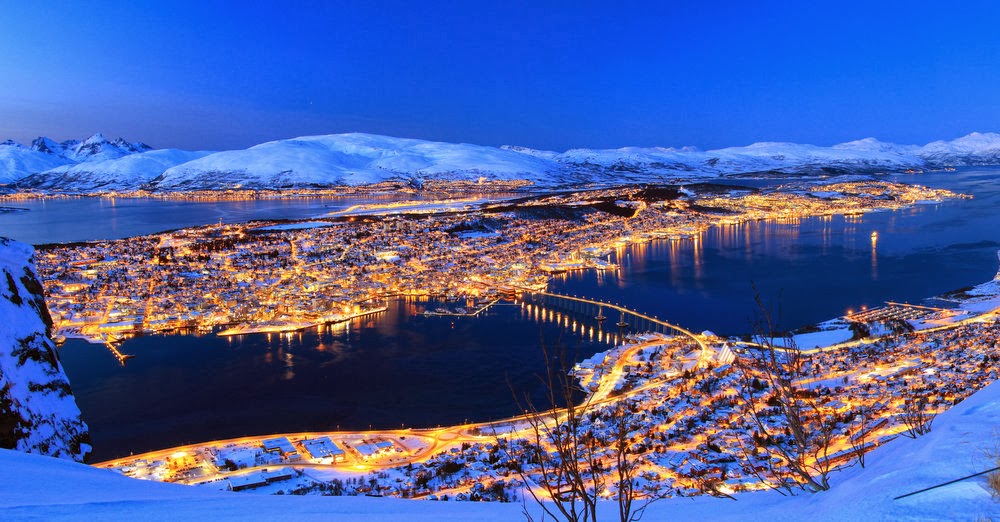When the Periphery Becomes the Centre - North Norway and the EU

The Norwegian city of Tromsø at night. Photo: Malte Humpert
Interest in the Arctic has grown considerably during the recent years. The Arctic is, at least in Norway, synonymous with North Norway. Northern Norway’s relevance as a region has subsequently grown and has found itself at the center of the widening Arctic debate. Hence, North Norway represents an intersection of international and regional politics. It is important to recognize that this interaction does not only apply nationally, but also on the international scene which is increasingly looking northwards.
Russia has long defined the Arctic as vital, both from the standpoint of economic growth and the ability to exert political power. Canada’s Prime Minister, Stephen Harper, is actively using the Arctic to promote Canadian sense of identity and sovereignty. In the United States politicians and businesses alike are beginning to realize the potential of the northern parts of Alaska, while a fierce debate about the need for an Arctic policy is taking place in the capital. In addition, China has shown a growing economic interest in Iceland, while sending icebreakers and research ships in the High North.
These and similar issue can easily be interpreted as international high-level politics, which do not relate to local affairs or business in North Norway. A more nuanced interpretation, however, will allow to draw direct connections to regional politics and interests. It is by no means a coincidence that the Norwegian foreign minister, Jonas Gahr Støre, visits North Norway more frequently than any other region in Norway. His Government has increased funding for the three northernmost counties, and one expects continued investment in the next strategic report for the High North. Roads are being built, research institutions created, and money transferred. Is this generosity from Oslo? Hardly.
Norway is dependent on having an active and well-developed northern Norway to legitimize its branding as an Arctic nation. Numerous stakeholders have clear, and sometimes, cynical interests in the region, and invest accordingly. The challenge, for North Norway, is to achieve greater levels of participation in the overarching debate from the local and regional level. Precisely herein lies the unique intersection between regional and the international politics, as a region that has often been at the periphery, finds itself in the center.
Thus, places other than Oslo have become relevant for North-Norwegian regional development. The EU, as a meeting place, is increasingly becoming important. In Brussels, both political and business interests are represented by numerous offices coming from all over Europe. As a meeting place for different interests, which directly and indirectly affect the development in North Norway, it is important to participate in this arena. The EU does in fact influence much of what goes on in the North, for better or for worse. And in Brussels people love dialogue, exchange of information and cooperation across borders
Differentiated payroll tax, the export market for fish, or the demand that drives the development of new oil and gas fields, are just some examples of EU influence. The question, a northerner placed in Brussels asks himself, is thus how to make the most of the venues that are created and the opportunities that present themselves. This applies not only when the EU develops its Arctic policy, but also when a German industrial company looks for investment opportunities in the northern Norwegian ports, or a British research institute wants North Norwegian partners.
It is therefore especially important to highlight the skills and the competence that exist from the coast of Helgeland up to Kirkenes. Everything from regional county Presidents to North Norwegian students are regularly traveling to Brussels. The purpose is twofold; namely to learn how the EU affects North Norway, while at the same time promote North Norwegian interests in a European and international environment that is increasingly showing interest in the region. This interaction is likely to become more relevant in the future, as the sea ice is melting and petroleum and shipping activity in the Arctic increases. Related, the role of the EU as a facilitator for dialogue and information between Arctic actors will continue to be of importance.